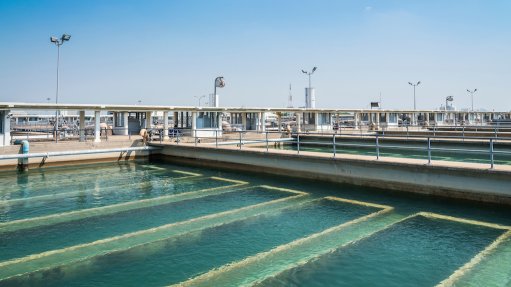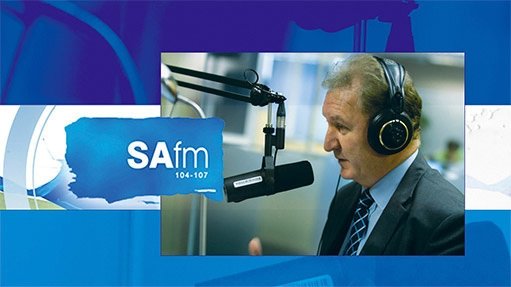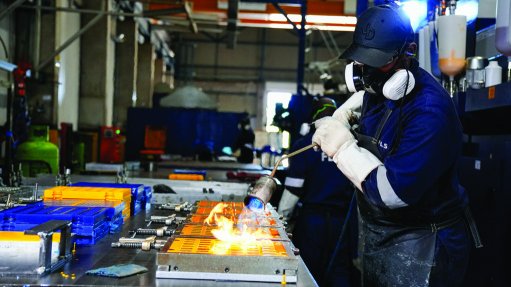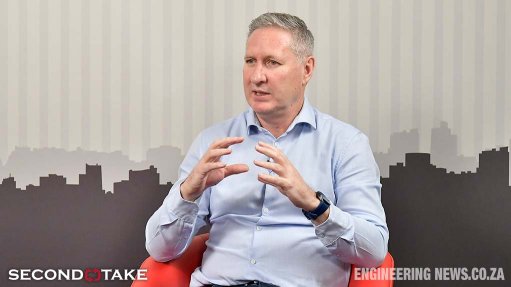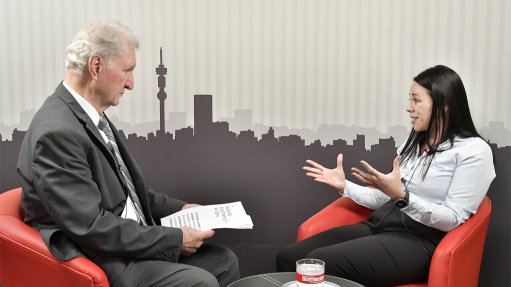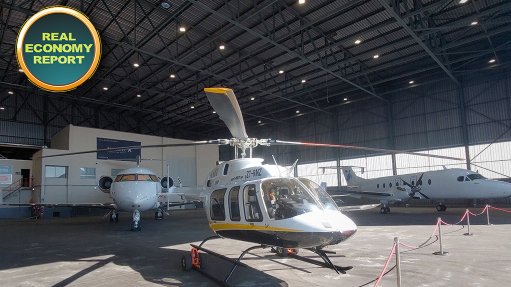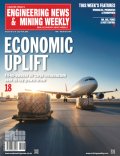Public interest objectives of spectrum licensing must be prioritised, webinar participants hear
South Africa's telecommunications industry, policy makers and regulators must prioritise the various developmental objectives sought from radio frequency spectrum's use to overcome the multiyear challenges to assigning spectrum for use, mobile telecommunications company Vodacom policy and regulations managing executive Dr Andrew Barendse said this week.
Barendse and other speakers participating in University of Johannesburg (UJ) and University of the Witwatersrand (Wits) co-hosted 'Impact of Spectrum on Higher Education and Society' webinar, on November 29, highlighted various benefits to society, access to education and opportunities, and commercial and industrial uses arising from greater access to spectrum.
They also stressed the importance of access to spectrum to enable a transition to a digital economy and to gain Fourth Industrial Revolution (4IR) competitive advantages.
Mobile telecommunications company Telkom technology and strategy head Brite Devassy said the aim was to get spectrum assigned as fairly as possible, with the various arguments of what constitutes fair delaying the assignment and licensing of the spectrum.
The public interest objectives of what South Africa wants to achieve through the licensing of spectrum, including universal coverage, lowest prices, to incentivise investment, promote transformation of the industry and create new entrants, as well as generating money for the fiscus, must be prioritised and then pursued, said Barendse.
Access to different spectrum bands influences the network design and network investment pathways of companies, and they require a visible trajectory of spectrum availability to know what investments and assets to put in place for the next ten years, noted Devassy.
"Depending on the spectrum available to a company, there will be different radio planning parameters for mobile network deployment and mobile telecommunications towers are built based on spectrum available for use, with some spectrum bands providing better penetration for in-door use, while other spectrum bands provide better broadband capacity, but can only reach users within a small radius around the tower."
For South Africa to stay globally competitive, it must address the issue of access to broadband connectivity. Therefore, the industry and government should push hard for the rollout of fifth-generation (5G) technology if the country is to leapfrog in tandem with technological innovations in digital systems, with one of the enabling components, among others, being that spectrum must be in place, said Wits vice-chancellor Professor Zeblon Vilakazi.
"Without adequate spectrum for telecommunications, it goes without saying that this will worsen the digital divide. The conversation around digital transformation has to answer the question of equitable access, which, in South Africa's context, is intertwined with the fissures in society," said UJ vice-chancellor and principal Professor Tshilidzi Marwala.
Further, the impact of the availability of spectrum on higher education means it is critical to enhance access to bandwidth for digital and blended learning, he said, adding that UJ was moving to a blended learning model that would see greater use of digital platforms in addition to contact classes.
The probable first use cases for greater access to spectrum would be to provide fixed wireless access for households. Fixed wireless access is also almost fundamental to offer basic education, because South Africa does not have the fixed infrastructure penetration of developed countries, said Devassy.
"Other use cases can then be explored and built on investments to provide fixed wireless access, including providing services for the mining sector. The whole ecosystem must be considered to effectively leverage spectrum for economic development and education, because it must make economic sense for network operators to roll out services," he said.
5G must be pursued, because it enables the use of spectrum from different bands that are collated to provide a better experience, but will probably take place after other use cases for spectrum.
The network infrastructure of South African telecommunications companies proved to be resilient and robust during the pandemic, and data traffic across most networks, by and large, doubled during the pandemic period. Telecommunications companies not only supported ongoing commercial activity, but also provided social services, including zero-rating and virtual classrooms, as part of their obligations alongside their normal commercial activity, said Barendse.
Policy makers and regulators assigned temporary spectrum to telecommunications companies during the pandemic and relaxed the regulatory regime on operators, which meant they could respond as they did, he added.
Johannesburg Centre for Software Engineering director and Wits office of the deputy vice-chancellor Research and Innovation director of Innovation Strategy Professor Barry Dwolatzky said people in South Africa needed good quality, low-cost connectivity wherever they were.
"It is up to industry and government to make that possible and, if we are going to succeed as a country in the Fourth Industrial Revolution, we must make sure that every citizens has access to affordable, high-quality connectivity, or we will not achieve the benefit of the [4IR] in an equitable manner," he said.
"It is a case of working together as commercial and government stakeholders to make this happen."
Comments
Press Office
Announcements
What's On
Subscribe to improve your user experience...
Option 1 (equivalent of R125 a month):
Receive a weekly copy of Creamer Media's Engineering News & Mining Weekly magazine
(print copy for those in South Africa and e-magazine for those outside of South Africa)
Receive daily email newsletters
Access to full search results
Access archive of magazine back copies
Access to Projects in Progress
Access to ONE Research Report of your choice in PDF format
Option 2 (equivalent of R375 a month):
All benefits from Option 1
PLUS
Access to Creamer Media's Research Channel Africa for ALL Research Reports, in PDF format, on various industrial and mining sectors
including Electricity; Water; Energy Transition; Hydrogen; Roads, Rail and Ports; Coal; Gold; Platinum; Battery Metals; etc.
Already a subscriber?
Forgotten your password?
Receive weekly copy of Creamer Media's Engineering News & Mining Weekly magazine (print copy for those in South Africa and e-magazine for those outside of South Africa)
➕
Recieve daily email newsletters
➕
Access to full search results
➕
Access archive of magazine back copies
➕
Access to Projects in Progress
➕
Access to ONE Research Report of your choice in PDF format
RESEARCH CHANNEL AFRICA
R4500 (equivalent of R375 a month)
SUBSCRIBEAll benefits from Option 1
➕
Access to Creamer Media's Research Channel Africa for ALL Research Reports on various industrial and mining sectors, in PDF format, including on:
Electricity
➕
Water
➕
Energy Transition
➕
Hydrogen
➕
Roads, Rail and Ports
➕
Coal
➕
Gold
➕
Platinum
➕
Battery Metals
➕
etc.
Receive all benefits from Option 1 or Option 2 delivered to numerous people at your company
➕
Multiple User names and Passwords for simultaneous log-ins
➕
Intranet integration access to all in your organisation






